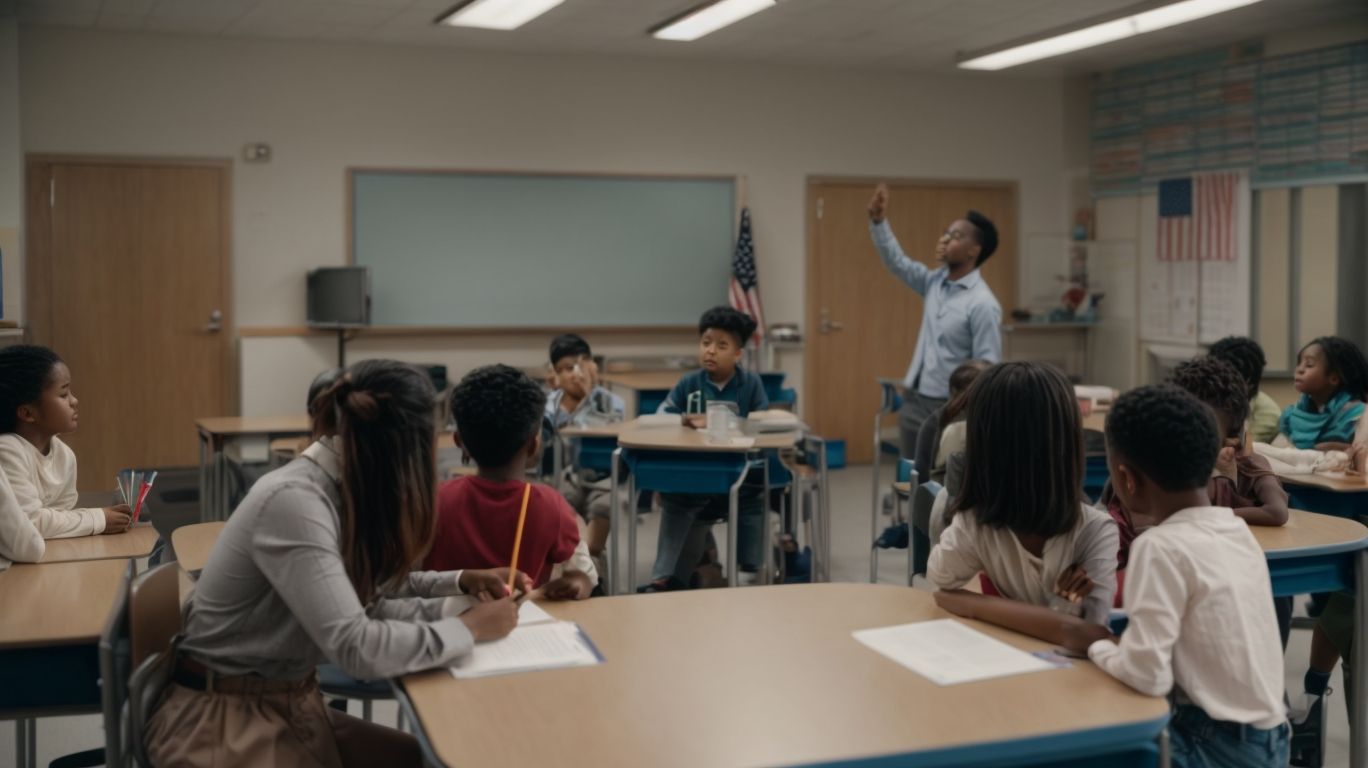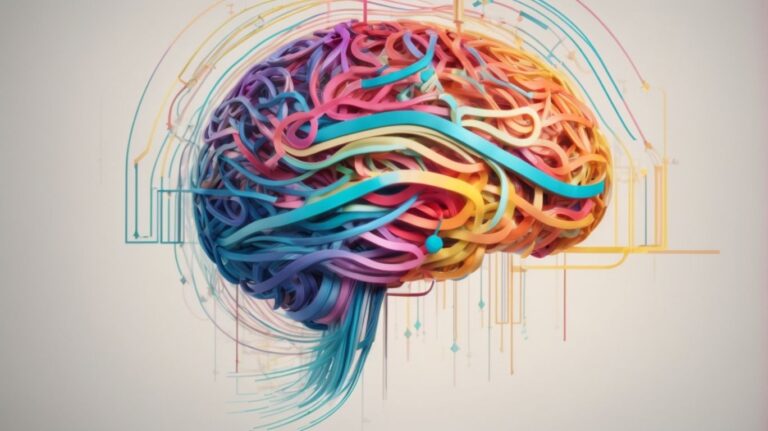Are you passionate about making a positive impact in the lives of students with special needs? Have you considered pursuing a career as a special education teacher?
With a degree in psychology, you can play a crucial role in the education and development of children with learning disabilities. In this article, we will explore the role of a special education teacher, the benefits of having a psychology degree in this field, the steps to becoming a special education teacher, and the challenges and rewards of this career.
If you’re ready to empower your career and make a difference in the lives of students, keep reading to learn more!
Contents
- 1 Key Takeaways:
- 2 What Is Special Education Teaching?
- 3 What Is the Role of a Special Education Teacher?
- 4 How Can a Psychology Degree Help in Becoming a Special Education Teacher?
- 5 What Are the Steps to Becoming a Special Education Teacher with a Psychology Degree?
- 6 What Are the Challenges and Rewards of Being a Special Education Teacher?
- 7 How Can a Special Education Teacher Make a Positive Impact in Students’ Lives?
- 8 Frequently Asked Questions
- 8.1 Can I become a special education teacher with a psychology degree?
- 8.2 What is the benefit of having a psychology degree as a special education teacher?
- 8.3 What are the required qualifications for becoming a special education teacher with a psychology degree?
- 8.4 Do I need teaching experience to become a special education teacher with a psychology degree?
- 8.5 How can I best utilize my psychology degree in the special education field?
- 8.6 What are the career prospects for special education teachers with a psychology degree?
Key Takeaways:
- A psychology degree provides a strong foundation for understanding human behavior and development, which is essential in the role of a special education teacher.
- Special education teachers must have strong communication and collaboration skills to effectively work with students, their families, and other professionals.
- Pursuing continuing education and professional development opportunities is crucial for staying updated on best practices and techniques for teaching students with special needs.
What Is Special Education Teaching?
Special education teaching focuses on providing tailored support and resources to students with disabilities to address their specific learning needs and ensure their academic and behavioral success within educational settings.
These tailored supports often come in the form of Individualized Education Plans (IEPs), which are personalized plans outlining the specific services, accommodations, and goals for each student.
Specialized programs may be implemented to cater to the unique needs of students with disabilities, such as speech therapy, occupational therapy, or behavioral intervention programs, all of which are designed to enhance the learning experience and promote the individualized growth of each student.
Teachers play a pivotal role in special education by employing various instructional strategies, modifying classroom activities, and collaborating with support staff to ensure that the diverse needs of students with disabilities are met effectively.
What Is the Role of a Special Education Teacher?
The role of a special education teacher encompasses providing academic and behavioral support to students with disabilities, implementing individualized education plans, and collaborating with other professionals to create inclusive and effective learning environments.
Special education teachers play a crucial role in adapting curriculum materials and teaching strategies to meet the unique needs of each student.
They may develop and implement individualized education programs (IEPs) that outline specific goals, accommodations, and teaching strategies for students with disabilities.
Plus teaching academic subjects, special education teachers also focus on supporting students’ social and emotional development, often employing specialized behavioral intervention techniques to address challenging behaviors.
Collaboration is an essential component of a special education teacher’s role. They work closely with parents, general education teachers, school administrators, and other specialized professionals, such as speech therapists and occupational therapists, to assess students’ needs and develop effective intervention plans.
This collaborative approach ensures that students with disabilities receive comprehensive support across all aspects of their education.
How Can a Psychology Degree Help in Becoming a Special Education Teacher?
A psychology degree provides a strong foundation for becoming a special education teacher by offering insights into human behavior, learning disabilities, effective communication, and collaborative skills necessary for addressing the diverse needs of students with disabilities.
By studying psychology, individuals gain a deep understanding of the cognitive, emotional, and behavioral aspects of human development, which is crucial for designing tailored educational strategies for students with special needs.
Additionally, psychological knowledge equips educators to recognize and address the unique learning challenges faced by individuals with disabilities.
Effective communication skills cultivated through a psychology degree enable teachers to establish meaningful connections with students, parents, and fellow educators, fostering a supportive and inclusive learning environment.
The ability to communicate compassionately and empathetically is essential for effectively addressing the complex needs of students with diverse abilities.
The collaborative abilities honed through psychological education prepare future special education teachers to work closely with multidisciplinary teams, including therapists, counselors, and support staff, to implement comprehensive and inclusive educational programs.
This collaborative approach ensures that students receive holistic support that integrates educational, emotional, and behavioral considerations.
Understanding Human Behavior and Development
A psychology degree equips aspiring special education teachers with an understanding of human behavior and development, providing insights into the complexities of learning disabilities and cognitive differences among students with special needs.
This foundational knowledge serves as a crucial framework for developing effective teaching strategies tailored to the unique needs of each student.
Understanding the psychological aspects of human behavior and development enables special education teachers to create supportive and inclusive learning environments.
By incorporating psychological theories and principles into their teaching practices, educators can address the diverse cognitive, emotional, and social aspects of learning disabilities, fostering holistic development and academic success among their students.
Knowledge of Learning Disabilities and Special Needs
A psychology degree equips individuals with a deep understanding of learning disabilities and special needs, enabling future educators to effectively support the diverse cognitive and developmental needs of students.
Through the study of cognitive processes, behavior, and human development, students gain insights into the psychological underpinnings of learning challenges.
By comprehensively examining the implications of specific disabilities, such as dyslexia, ADHD, and autism spectrum disorders, future special education teachers can tailor their strategies to accommodate various learning styles and abilities.
Effective Communication and Collaboration Skills
A psychology degree cultivates effective communication and collaboration skills, essential for special education teachers to engage with students, families, and multidisciplinary teams to create supportive and inclusive learning environments.
These skills are pivotal in understanding the diverse needs of students with various abilities, providing differentiated instruction, and fostering positive relationships within the educational community.
Effective communication allows teachers to convey complex information in accessible ways, while collaboration enables them to work alongside therapists, counselors, and support staff to develop comprehensive plans that cater to individual student requirements.
Strong communication and collaboration are instrumental in advocating for students’ rights and ensuring their access to the appropriate resources and support systems.
This not only give the power tos students but also fosters a culture of inclusion and understanding within the school environment, promoting acceptance and respect for individual differences.
Knowledge of Behavioral and Classroom Management Techniques
A psychology degree provides insights into behavioral and classroom management techniques, equipping special education teachers with the strategies to address diverse behavioral and academic needs within inclusive educational settings.
With this knowledge, teachers can establish supportive learning environments that cater to the unique requirements of students with disabilities. By implementing evidence-based interventions and creating individualized behavior plans, they can effectively manage and minimize disruptive behaviors.
Understanding mental health complexities and utilizing positive reinforcement strategies fosters a positive and inclusive learning environment for all students.
What Are the Steps to Becoming a Special Education Teacher with a Psychology Degree?
Becoming a special education teacher with a psychology degree involves completing a bachelor’s degree in psychology, obtaining teaching certification, gaining experience in special education settings, and pursuing continuous professional development to enhance instructional skills and knowledge.
After obtaining a bachelor’s degree in psychology, aspiring special education teachers need to pursue a teaching certification program that aligns with the regulations of the specific state or region where they plan to work.
This certification typically requires passing exams, completing a student teaching experience, and meeting other state-specific requirements.
Once certified, gaining experience in special education settings becomes essential. This can be achieved through internships, volunteer work, or entry-level positions in schools or organizations that cater to students with special needs.
Obtaining practical experience is valuable for developing a deep understanding of the challenges and opportunities within the field.
Continuous professional development is crucial for special education teachers to stay updated with the latest teaching methods, behavioral interventions, and assistive technologies.
This can involve participating in workshops, attending conferences, pursuing advanced certifications, or enrolling in relevant higher education programs to enhance their skill set and impact in the classroom.
Complete a Bachelor’s Degree in Psychology
The first step towards becoming a special education teacher with a psychology degree is completing a comprehensive bachelor’s degree program in psychology, setting the foundation for understanding human behavior and learning processes.
By pursuing a psychology bachelor’s degree, individuals gain insight into the complexities of human behavior, cognitive processes, and emotional development.
This knowledge is invaluable when working with students who have diverse learning needs and behavioral challenges.
A psychology degree equips future special education teachers with the ability to assess, analyze, and understand various learning styles, facilitating personalized teaching approaches to meet the unique requirements of students with special needs.
This educational path provides a deep understanding of the impact of environmental, social, and emotional factors on learning, thereby enabling educators to create inclusive and supportive classroom environments where every student can thrive.
Obtain Teaching Certification and Licensure
The next step involves obtaining teaching certification and licensure to qualify as a professional special education teacher, allowing individuals to apply their psychological knowledge in educational settings to support students with diverse learning needs.
Obtaining teaching certification and licensure is a crucial process for special education teachers. It involves meeting specific educational requirements, often including a bachelor’s degree, completion of a teacher preparation program, and passing standardized assessments.
Attaining this certification demonstrates a commitment to professional development and the ability to meet high standards of teaching in the field of special education. It also signifies a level of expertise in understanding and addressing the unique needs of students with disabilities and integrating various instructional strategies to facilitate their learning.
Obtaining licensure ensures that teachers adhere to the legal and ethical standards set forth by regulatory bodies, providing a level of accountability and ensuring that qualified individuals are entrusted with the education and well-being of students with diverse learning needs.
Gain Experience in Special Education Settings
Gaining practical experience in special education settings is essential for aspiring teachers with a psychology degree, providing opportunities to apply theoretical knowledge in supporting students with disabilities and diverse learning profiles.
Hands-on experience in special education equips educators with the skills to individualize instruction, assess learning needs, and implement evidence-based interventions tailored to each student’s unique requirements.
This practical exposure fosters an understanding of the complex interplay between psychological theories and the reality of the classroom, nurturing the ability to translate theoretical knowledge into effective instructional practices that cater to the diverse needs of students with disabilities.
Pursue Continuing Education and Professional Development
Continuous pursuit of education and professional development is crucial for special education teachers with a psychology degree to stay updated with best practices, strategies, and interventions for supporting students with disabilities.
Ongoing professional development opportunities provide special education teachers with the chance to deepen their understanding of inclusive education methodologies. This includes behavior management techniques and assistive technologies that can significantly enhance the learning experiences of students with special needs.
What Are the Challenges and Rewards of Being a Special Education Teacher?
Being a special education teacher presents both challenges and rewards, from navigating diverse learning needs and behavioral variations to witnessing the growth and achievements of students with disabilities within educational settings.
Special education teachers have the important responsibility of creating personalized learning plans for each student, which involves working closely with parents, therapists, and other educators.
This can be emotionally taxing, but the joy of seeing a struggling student succeed makes it all worth it. However, the workload and emotional toll of working with students with complex needs can be overwhelming, requiring resilience, patience, and unwavering dedication.
Challenges of Special Education Teaching
Special education teaching encompasses various challenges, including addressing individualized needs, managing diverse behaviors, and ensuring academic progress for students with disabilities.
Special education teachers often navigate the complexities of catering to individualized learning plans. They must also understand and manage the diverse spectrum of student behaviors, while providing necessary academic support within the constraints of the general education setting.
These dedicated teachers work tirelessly to create inclusive learning environments where each student with disabilities feels valued and give the power toed.
This involves continuously adjusting teaching strategies, adapting materials, and utilizing assistive technologies. They also foster collaborative partnerships with parents, support staff, and other educators to ensure holistic development for their students.
Rewards of Special Education Teaching
The rewards of special education teaching include witnessing the growth, achievements, and progress of students with disabilities, fostering a sense of fulfillment and making a lasting impact on the lives of these exceptional learners.
Engaging in special education teaching not only shapes the academic and social development of students but also contributes significantly to their overall well-being.
By providing personalized support, special education teachers can give the power to students to unlock their potential and build confidence in their abilities to overcome challenges.
This nurturing environment lays the foundation for them to achieve milestones that were once thought to be unattainable, fostering a culture of inclusivity and resilience.
How Can a Special Education Teacher Make a Positive Impact in Students’ Lives?
A special education teacher can make a positive impact in students’ lives by providing personalized support, fostering inclusive learning environments, and give the power toing students with disabilities to succeed academically and socially.
Personalized support is essential for identifying and addressing the unique needs of students with disabilities.
By implementing individualized education plans (IEPs) and differentiated instruction, special education teachers can tailor their approach to each student’s specific learning requirements.
Inclusive practices involve creating a welcoming and supportive classroom environment where all students, regardless of their abilities, feel valued and respected. This can be achieved through collaborative activities, peer tutoring, and promoting a culture of diversity and acceptance.
Empowerment plays a crucial role in instilling confidence and self-advocacy among students with disabilities. Special education teachers can encourage independence, autonomy, and self-esteem by setting achievable goals, offering constructive feedback, and promoting a growth mindset.
Frequently Asked Questions
Can I become a special education teacher with a psychology degree?
Yes, it is possible to become a special education teacher with a psychology degree. Many states offer alternative certification programs that allow individuals with a psychology degree to become certified as special education teachers.
What is the benefit of having a psychology degree as a special education teacher?
Having a psychology degree can be advantageous for special education teachers as it provides a deeper understanding of human behavior and development. This knowledge can be applied in creating individualized education plans and addressing behavioral issues in the classroom.
What are the required qualifications for becoming a special education teacher with a psychology degree?
To become a special education teacher, you must have a bachelor’s degree in psychology or a related field. Some states may also require additional coursework or a teaching certification program. It is best to check with your state’s department of education for specific requirements.
Do I need teaching experience to become a special education teacher with a psychology degree?
While teaching experience is not always required, it can be beneficial as it provides practical knowledge and skills in managing a classroom and working with students with special needs. Many alternative certification programs also require a certain amount of teaching experience before becoming certified.
How can I best utilize my psychology degree in the special education field?
As a special education teacher with a psychology degree, you can use your knowledge and understanding of human behavior to create effective learning environments and individualized education plans for students with special needs. You can also use your skills in behavior management and counseling to support students in the classroom.
What are the career prospects for special education teachers with a psychology degree?
The demand for special education teachers is expected to grow, making it a promising career choice. With a psychology degree, you can also pursue other career opportunities in the field of special education, such as becoming a behavior specialist or school counselor.




